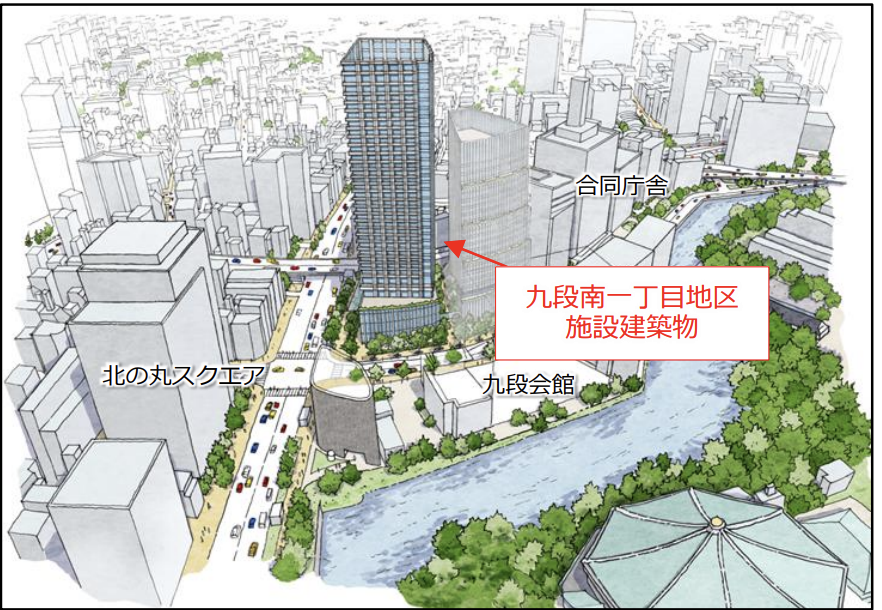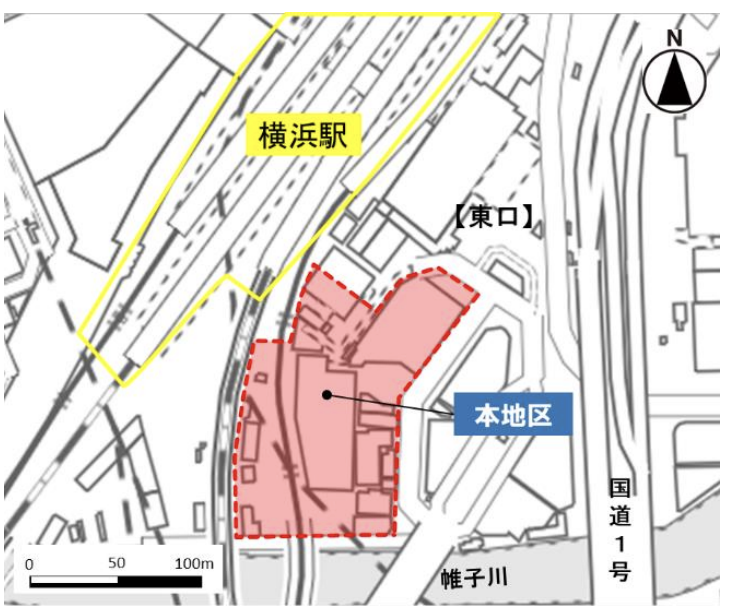The real estate industry is currently facing many challenges, including a shrinking market due to a declining birthrate and aging population, labor shortages, and massive data processing. AI technology is attracting attention as an effective solution to these challenges.
With the evolution of real estate tech, AI is being used in a variety of tasks, including property assessments, customer service, and contract creation. In fact, some companies that have adopted AI have reported a 30-50% reduction in work hours and up to a 67% increase in sales. This article explains why the real estate industry should utilize AI, specific ways to use AI, and key points for its introduction.
Key Challenges Facing the Real Estate Industry
Four Industry-Specific Challenges
The real estate industry faces unique challenges not found in other industries. According to statistics from the Ministry of Land, Infrastructure, Transport and Tourism and the Real Estate Information Center, these challenges are becoming more serious every year.
-
Market contraction due to demographic changes
Due to Japan's declining population and aging population with fewer children, the number of new housing starts is decreasing from 953,000 in 2018 to 861,000 in 2022. As the market shrinks, differentiation from competitors is essential. -
Huge amount of data processing and analysis difficulties
A single property contains a huge variety of data, including land prices, roadside land prices, building age, facilities, distance from stations, and so on. It is extremely difficult to properly process and analyze these data manually. -
Personnel-driven price assessment and decision-making
Assessing property prices and setting rents is a delicate process, as too high a price can drive customers away, and too low a price can reduce profitability. Until now, this process has relied heavily on experience and intuition, and has varied from person to person. -
Manpower Shortage and Aging Population
According to a survey by ZENYAKUREN, the real estate industry has an aging workforce, making it difficult to recruit younger workers. Another issue is the low retention rate.
Lagging behind in digitalization
Compared to other industries, the real estate industry tends to lag behind in digitalization. According to a survey by Ierabu Group, Inc., approximately 70% of real estate companies responded that they "want to use" generative AI, while only 10% responded that they are actually "using" it.
The following factors are thought to be behind this
- Reliance on traditional business practices
- Lack of understanding of IT investments
- Lack of digital human resources
- Concerns about implementation costs
However, resolving these issues and promoting industry-wide digital transformation will be essential to maintaining competitiveness in the future.
Transformation that AI will bring to the real estate industry
Business Process Automation
Automation of business processes through AI will greatly improve operational efficiency in the real estate industry.
-
Automation of Contract Document Preparation
AI can significantly reduce the time required to prepare complex contract documents, such as the Important Matters Explanation, by automatically generating them. -
Improved efficiency in responding to inquiries
The introduction of AI chatbots makes it possible to respond to inquiries 24 hours a day, 365 days a year; according to a Luxury Presence survey, about 79% of routine inquiries in the real estate industry can be handled by AI chatbots. -
Improved efficiency of property information input
AI image recognition technology can streamline the data entry process by automatically extracting floor plans and facility information from property photos.
This automation allows real estate professionals to focus on high-value-added tasks.
Advanced Decision-Making through Data Utilization
AI-based data analysis enables more precise decision-making.
-
Elaboration of market analysis and price assessment
More accurate price assessments are realized by analyzing complex factors such as past contract data, regional characteristics, and facility conditions. This is expected to result in appropriate pricing and improved inventory turnover. -
Improved accuracy of investment decisions
The accuracy of investment decisions is improved by AI's predictive analysis of the future potential of an area and the profitability of a property. This enables the reduction of investment risk and maximization of returns. -
Preemptive strategies based on trend predictions
Market trend analysis by AI can anticipate demand forecasts and price fluctuations for each area. This makes it possible to develop proactive sales strategies.
| Data Analysis Target | Conventional Method | Changes through the use of AI |
|---|---|---|
| Price assessment | Judgment based on experience and intuition | Objective appraisal based on past data analysis |
| Demand forecasting | Simple extension of past trends | Highly accurate forecasting considering multiple factors |
| Investment decisions | Judgment based on limited information | Comprehensive judgment based on a vast amount of data |
| Market analysis | Limited manual analysis | Real-time and extensive analysis |
Improved customer experience
The use of AI can also make a significant contribution to improving customer satisfaction.
-
Personalized property suggestions
Analyzing a customer's past browsing history and preferences, the system can suggest the most suitable properties for each individual customer. Tokyu Livable and NEC have developed an AI-based property matching system that has successfully improved the accuracy of property suggestions that match customer needs. -
Improving Customer Satisfaction through Prompt Response
The introduction of AI chatbots enables immediate responses 24 hours a day. This enables timely responses to customer questions and concerns. -
Immersive property experience
Virtual tours and AR/VR experiences that utilize AI technology allow customers to understand the details of a property before visiting it in person. This facilitates the customer's decision-making process.
AI Applications in the Real Estate Industry
Advanced Efforts by Japanese Companies
In the Japanese real estate industry, AI utilization is progressing, especially among major companies. Below are some representative examples.
-
Mitsui Fudosan Realty "Re-House AI Assessment
This system uses past transaction data to automatically assess appropriate market prices based on detailed property information. This has improved the objectivity and accuracy of assessments. -
Itanji "Nomad Cloud
We have succeeded in improving the rate of visits to our stores through an AI-based reservation system for previews. By analyzing customers' desired conditions and behavior patterns, the system approaches them at the most appropriate time, thereby improving the closing rate as well.
-
GOGEN Corporation "Chat Manager Powered by GPT-4
Provides a property inquiry response service utilizing ChatGPT, enabling 24-hour customer service.
Overseas Innovative Examples
More advanced AI applications are being made globally.
-
Zillow (U.S.)
An AI valuation system called "Zestimate" automatically estimates the value of more than 150 million properties across the United States. The accuracy is as high as 95% or more of the actual sale price. -
Opendoor (U.S.)
The AI-based "iBuyer" platform offers an immediate purchase price for properties, greatly simplifying and speeding up the transaction process. -
REX Real Estate (U.S.)
REX Real Estate (U.S.A.) provides services at about half the cost of traditional brokerage commissions through AI-based property marketing, which identifies optimal potential buyers and conducts efficient marketing.
Measuring ROI and effectiveness of AI implementation
Cost Reduction Effects
The following cost reductions can be expected with the introduction of AI
-
Reduction of work hours
Many companies have reported a 30-50% reduction in work hours after introducing AI. For example, by automating routine tasks such as creating contracts and entering property information, significant time reductions can be achieved. -
Optimization of labor costs
AI-based business automation enables optimization of personnel allocation. Some companies have reported reductions in customer support costs of up to 30%. -
Prevention of Losses through Reduction of Errors
Losses due to human error can be prevented. This can be particularly effective in preventing errors in important documents such as contracts.
| Business Domain | Man-hours before introduction | Man-hours after introduction | Reduction rate |
|---|---|---|---|
| Preparation of Important Information Explanatory Documents | 120 minutes per case | 10.8 minutes per case | 91% reduction |
| Response to customer inquiries | 15 minutes per case | Automatic response | Up to 79 |
| Property information registration | 30 min/project | 10 min/project | 67% of the time |
| Market Analysis Report Creation | 240 minutes/month | 60 minutes/month | 75% (of the total) |
Profit Improvement Effects
The effect of AI implementation on revenue improvement should not be overlooked.
-
Improved closing rate
AI can improve closing rates by providing optimal property suggestions and quicker responses; Intercom research has shown that AI chatbots can increase sales by up to 67%. -
Improved efficiency in acquiring new customers
AI-based marketing initiatives enable targeted and efficient customer acquisition. -
Improvement of repeat customer ratio
Personalized service through AI improves customer satisfaction and repeat business.
Example of ROI Trial Calculation
Let us estimate the cost and return of introducing AI.
| Item | Amount (example) |
|---|---|
| Initial investment (AI introduction cost) | 10 million yen |
| Annual operation cost | 2 million yen |
| Annual man-hour reduction (2,000 hours x 2,500 yen) | 5 million yen |
| Annual sales increase (5% increase) | 10 million yen |
| Annual net effect (effect - operation cost) | 13 million yen |
| Payback period | Approximately 0.8 years (9.6 months) |
This is just an example and will vary greatly depending on the size of the company and the type of AI to be introduced.
Barriers to Introducing AI and How to Overcome Them
Initial investment and cost management
Introducing AI requires a certain amount of investment. However, it does not necessarily require a large initial investment.
-
Phased introduction
Rather than converting all operations to AI at once, you can expand while confirming the return on investment by introducing AI in stages, starting with some of the most effective operations. -
Use of cloud services
Initial investment can be reduced by using cloud AI services that require a monthly fee instead of in-house development. -
Utilization of Subsidies and Grants
Government and municipal support programs, such as IT introduction subsidies, can be used to reduce introduction costs.
Human Resource Development and Organizational Structure
Success or failure of AI implementation depends on the human resources and organizational structure to utilize it.
-
Securing digital human resources
It is important to secure and train AI literate human resources. Improve the skills of existing employees through in-house training and external seminars. -
Commitment of management
According to McKinsey research, management consensus and a business-driven roadmap are essential for successful AI implementation. -
Acceptance of new ways of working
A flexible organizational culture must be fostered that accepts the changing workflows that will result from the introduction of AI. It is important to dispel the fear that "AI will take our jobs," and to change the mindset of "working with AI.
Ensuring data quality
High-quality data is essential to maximize the effects of AI implementation.
-
Importance of data maintenance
It is necessary to organize and integrate scattered internal data. Centralize past transaction data, customer information, property information, etc., and maintain them in a form that makes it easy for AI to utilize them. -
Establishment of data governance
Clear rules need to be set for who can access which data, how data should be updated and managed, etc. -
Ensure data security
Measures must be taken to safely handle data containing personal and confidential information. When using cloud services, check the data protection policy.
Conclusion
AI technology has the potential to bring about significant changes in the real estate industry. It can improve productivity by increasing operational efficiency, improve the accuracy of decision making by utilizing data, and enhance the customer experience.
The Japanese real estate industry is still in the early stages of AI adoption, but some leading companies have begun to see significant results. As the industry as a whole continues to digitize, the use of AI will become a source of competitive advantage.
McKinsey estimates that AI adoption in the real estate industry could create $110-180 billion in economic value. To avoid missing this wave, it is important to start preparing now.
Implementing AI will not happen overnight. However, by starting with small steps, we can gradually realize and expand the benefits. Please take a step forward in utilizing AI to open up the future of the real estate industry.
Frequently Asked Questions
What is the initial cost of introducing AI in the real estate industry?
The cost of AI implementation varies greatly depending on the scale and purpose of implementation. A small-scale AI chatbot implementation may cost from a few thousand yen per month, while a large-scale in-house AI system development may cost tens of millions of yen or more.
Some cloud-based AI services are available at low prices, making it possible to start with a low initial investment. A recommended approach is to start with a small-scale trial implementation and then expand in stages as you confirm the effectiveness of the system.
Are there any AI solutions that can be easily implemented by small and medium-sized companies?
Yes, there are a number of cloud-based AI solutions available for SMEs. For example:
- Chatbot implementation
- Property assessment AI
- Document creation: ChatGPT Business Plan (from 2,000 yen/month)
- Property data analysis: Monthly services from real estate tech companies
These do not require special system development and can be implemented in a relatively short period of time and at low cost.
How should the roles of AI and humans be divided?
The ideal division of roles between AI and humans is as follows
Tasks suitable for AI:
- Routine data entry and processing
- Analysis and pattern discovery of large amounts of data
- Initial inquiry response requiring 24-hour response
- Prediction from large amounts of historical data
Tasks that should be handled by humans:
- Emotional customer service
- Complex negotiations and decision making
- Tasks requiring creativity
- Final confirmation of AI output results
It is important to position AI as a tool that "extends human capabilities" rather than something that "takes away human jobs.
What is the accuracy and reliability of AI?
The accuracy of AI varies greatly depending on the application and data quality. In some cases, AI has achieved accuracy of 95% or more of actual sales price in property price assessment. On the other hand, natural language processing (e.g., chatbots) may have challenges, especially in responding to specialized questions.
AI output results must always be checked by a human, and a final check by a human expert is essential, especially for legal judgments and important decisions. In addition, since the accuracy of AI is highly dependent on training data, periodic re-training and updating is necessary.
Reference Information
- Ministry of Land, Infrastructure, Transport and Tourism, "Trends and Policies in the Real Estate Industry
- Real Estate Industry Statistics" by the Real Estate Information Center
- ZENYAKUREN, "How Should the Real Estate Industry Respond to Future Labor Shortages?"
- McKinsey & Company, "Generative AI can change real estate, but the industry must change to reap the benefits"
If you are considering DXing the real estate industry, please contact INA & Associates, Inc. for a free consultation on AI implementation. We will propose the best AI solution to meet your company's challenges.

Daisuke Inazawa
Representative Director of INA&Associates Inc. Based in Osaka, Tokyo, and Kanagawa, he is engaged in real estate sales, leasing, and management. He provides services based on his extensive experience in the real estate industry. Based on the philosophy that “human resources are a company's most important asset,” he places great importance on human resource development. He continues to take on the challenge of creating sustainable corporate value.

.png)













